- Home
- Sharon Sala
Remember Me Page 6
Remember Me Read online
Page 6
“Mrs. LeGrand, are you in pain?” the nurse asked quickly.
“I’m fine,” Frankie mumbled, blinking back tears. She had to be. She had no other choice.
And then Clay was beside her. She met his gaze, trying to read his thoughts. His expression was bland, almost polite. She wanted to scream.
“Your wife is getting chilled,” the nurse said, speaking to Clay as if Frankie was no longer present.
Clay’s glance shifted to the stiff set of Frankie’s shoulders.
“I’m sorry, honey, I didn’t think,” he said, and quickly shed his own jacket.
As Frankie stood up to walk to the car, Clay put it on her, working her arms into the overlong sleeves and overlapping its breadth around her waist.
Her tears came closer to the surface. He’d called her honey. Did that mean he was beginning to forgive, or was it just a word that he’d used out of habit?
“Drive safely,” the nurse said as they bundled Frankie into the front seat of the car.
“Yes, ma’am,” Clay said.
Moments later, they were pulling away from the hospital. Clay managed a smile and a pat on her leg before he lapsed into silence. Frankie couldn’t bring herself to pretend that all was well between them anymore. She should have been elated to be going home, but all she could feel was an overwhelming sense of panic. And there was a certainty within her that wouldn’t go away. She might not remember the last two years of her life, but she remembered her love for her man. She would not have left Clay of her own free will. Ever. And yet he believed that she had. That knowledge fed anger. The anger fed hurt.
As Clay stopped at a red light, another reality hit Frankie with a jolt. Accepting that her disappearance had not been of own accord, what reassurance did she have that it would not happen again? All she could think was, God, what a mess.
“Clay?”
He answered absently, his gaze focused on the red light as he waited for it to turn green.
“Hmm?”
“I don’t have a job anymore, do I?”
Clay looked startled. “Why, no, honey.” Then he added almost apologetically, “It’s been two years.”
She thought of the library, then looked away. “I loved working there.” Her fingers curled into fists as the light turned and Clay accelerated through the intersection. “As soon as I’m better, I’ll start looking for another job.”
He frowned. The idea of Frankie being out of his sight was frightening. “There’s no hurry,” he said quickly.
“But we’ll be needing the money. My salary always pays…I mean paid, the utilities. If I don’t work, it’ll put us in a bind.”
Clay hesitated, choosing his words carefully so as not to insult her. “Not really—at least, not anymore. I bought Dad out a while back. The company is doing good. There’s no rush.”
She didn’t know what to say. One of their dreams had already been realized and she’d had no part in its happening. Fear spiked. What else had he done in her absence? Please God, just let him still love me.
A few minutes passed, and the silence inside the car was growing more uncomfortable by the moment. Finally, for lack of anything else to say, Frankie said, “I was wondering about my clothes.”
A muscle jerked in his jaw. “They’re in the spare bedroom closet. Mom got them all out the other day and washed them.”
“All of them?”
He nodded.
“I didn’t take anything with me?”
He hesitated, then shook his head.
The tone of Frankie’s voice shifted sarcastically. “And you didn’t think that was strange?”
He inhaled sharply, angered by the accusation in her question. “Don’t go there, Francesca. You don’t know what the hell you’re talking about. Two years ago this month, I came home, expecting to see my wife, and instead I found blood in the bathroom and a broken coffee cup and spilled coffee on the kitchen floor. Within an hour, I was the prime suspect in your murder, so don’t give me ‘strange.’ Everything about it was strange.”
In the middle of his answer, Frankie started to shake. She could still hear his voice, but the words were fading. Something flashed across her memory.
Hands upon her mouth.
A sharp prick in the flesh of her upper arm.
Someone whispering her name.
She gasped and put her hands to her head as if trying to hold on to the images, but they disappeared as quickly as they had come. She groaned.
“What?” Clay asked.
“I don’t know. Something just…” She shook her head. “It’s gone now. I don’t know if it was a memory or my imagination.”
Clay refused to be swayed by confusion and chose to ignore what she said.
“We’re almost home,” he said. “You’ll feel better after you rest.”
She flinched. His refusal to address her confusion was making her crazy.
“No, Clay, I won’t,” she snapped. “I won’t feel better until I understand what’s going on. I’ve lost two years of my life, and the way I feel, I’m losing my husband, as well. A good nap isn’t going to cure a damn thing.”
The color faded from his face. “You’re not losing me,” he muttered.
“Feels like it to me.”
She looked at him for a long, silent moment—waiting for a more reassuring response, or, at the least, some sign of tenderness. It wasn’t there. When he turned the corner and headed down their street, she looked away.
The tension between them lengthened. Moments later, he was parking in the driveway, and the business of getting her out of the car and into the house overtook the inquisition.
The house smelled damp, a holdover from the recent rains. Clay helped Frankie inside, then stopped to turn up the central heat. As he did, she swayed. He reached to steady her, his hand brushing her breast, then lingering at the curve of her waist.
She watched his nostrils flare and then saw his mouth soften. She leaned forward, offering herself out of both love and desperation.
He didn’t move.
She tensed, waiting for him to come closer, to take her in his arms and tell her how much she meant to him, how glad he was that she’d come home.
But the moment never came. She lifted her chin, her voice bitter with tears. “You know something, Clay? I never figured you for a quitter.”
Then she took her bag from his hands and made her way down the hall without him. It was the longest twenty feet of her life.
Clay watched her go, wanting to go after her. But he kept remembering the years of believing she was dead—of being hounded mercilessly by the police and the press. A part of him was afraid to let go of the safety net he’d built around his heart.
“Coward,” he muttered to himself, then stalked into the kitchen to make some coffee.
An envelope and a small pile of clothes were lying on the kitchen table. He’d forgotten to put them away. He picked up the clothes, fingering the fabric and looking at the labels. He wasn’t much of a judge of women’s clothing, but it was obvious that these were not off any department-store rack. He dropped them on the table, reached for the envelope and looked inside, still incredulous that Frankie had been carrying this kind of money.
He turned toward the doorway. Frankie was coming down the hall. Suddenly he wanted to see her face when he showed her the money. If she had something to hide, he would know it.
She walked into the kitchen with an empty pill bottle in her hands. Her expression was closed, her body language posting an “off-limits” sign that any fool could have read.
“I have a headache. We’re out of painkillers,” she said.
He tossed the envelope on the counter and headed for the cabinet over the sink.
“Here you go,” he said, shaking a couple out in her hands.
“Thank you.”
Clay’s conscience tugged. She looked so hurt, so confused.
“Francesca…”
“What?”
“Look, I’m sorry if I
’ve hurt your feelings, but you have to understand my—”
“Why?”
He hesitated, frowning. “Why what?”
“Why do I have to understand your feelings? You don’t seem inclined to understand mine.”
He took a slow breath. He didn’t want to fight, he just wanted answers.
“How can I understand anything, Francesca, when everything about you is still a big mystery?”
Tears surfaced again. “And no one regrets that more than I. But there’s one thing I haven’t forgotten.”
His interest heightened. “What?”
“How much I love you.”
He paled. The pain in her voice was palpable. “And I love you, too,” he whispered, his voice shaking with emotion.
Her chin began to quiver. “Then why, Clay? Why are you keeping me at arm’s length?”
His hands were shaking as tossed the envelope toward her. Money spilled from inside as it flew through the air.
“This was in the pocket of your slacks. Where did it come from?”
Frankie saw it fluttering to the floor, but her mind was already moving beyond the action to a scene from her past.
She rolled him over, shocked by the blood trickling from his lips. Then she gritted her teeth and thrust her hand in his pockets. She would need the money to help get away.
“Frankie?”
She looked up, her expression blank.
“I asked you a question.”
“I’m sorry, what did you say?”
“I asked you where the money came from.”
The answer came out of nowhere, surprising her more than it did Clay.
“I thought he was dead.”
Clay jerked as if he’d been slapped, then grabbed her by the arm, forcing her to look up at him.
“What the hell did you say?”
She covered her face with her hands. “I don’t know, I don’t know,” she mumbled.
But Clay couldn’t let it go. “Who, Frankie? Who did you think was dead?”
Dark eyes—white teeth—smiling—always smiling.
Then the image disappeared, gone too quickly for her to see his face.
“I don’t know,” she moaned.
He cursed and turned away.
Suddenly it was all too much. Frankie sank to the floor on her knees, desperate for Clay to believe. “For God’s sake, give me a chance.”
Clay turned, and in that moment, knew a terrible shame. “Ah, God, Francesca, don’t do that.”
He picked her up and carried her down the hall. Her quiet sobs tore at him as he laid her on the bed. When he turned her loose, she rolled away from him, curling herself in a ball as her shoulders shook from grief.
“Frankie, I—”
She put her hands over her ears.
Heartsick, he straightened, covered her with an afghan and started toward the door.
Suddenly she rolled over on her back, her tear-streaked eyes wide with fright. “Don’t close the door!”
He paused and turned. The terror in her eyes and voice was impossible to miss.
“All right,” he said.
“I don’t like to be shut in,” she muttered, then watched to make sure he did as she’d asked.
Clay’s heart was hammering as he walked back to the kitchen. He paused in the doorway, remembering the fear in her voice as he knelt to pick up the money. A few moments later he stood, the wad of cash in his right hand. An echo of her cry sifted back through his mind.
I thought he was dead.
He looked down a the money he was holding and shuddered.
“Jesus,” he muttered, and stuffed it back into the envelope, then dropped it in a nearby drawer. There would be time enough later to figure out what to do with it. For now, he just wanted it out of his sight.
Down the hall, Frankie lay on the bed, swallowing the last of her sobs and contemplating the emptiness of her homecoming. This was so wrong—so very, very wrong—and she didn’t know how to make things right. Clay didn’t believe her, and in spite of his assurances to the contrary, she didn’t believe he loved her anymore. At least, not like he used to. She felt like she was coming undone. She rolled over on her side, pulling the afghan with her and closing her eyes.
Clay was in the kitchen now. The subdued banging of pans was not as subtle as it might have been. On any other occasion, it would have been comical, Clay trying to cook. Then she took a deep, shuddering breath. But he’d been doing just that for the better part of two years now, hadn’t he? In fact, in his mind, he probably thought he’d been widowed.
A last angry tear slipped from under her eyelid and onto the pillow. But she wasn’t dead. She was alive, and she was back, and he was going to have to learn how to live with the holes in her life until she found a way to fill them.
Las Vegas, Nevada
The sleek, private jet taxied to a stop a few yards shy of the white stretch limo waiting at the end of the runway. Moments later, the exit door opened. Duke Needham appeared at the top of the stairs, waved toward the waiting limousine, then disappeared back inside the plane. A short while later, the driver exited the limousine with a wheelchair in hand and hurried up the steps.
The scent of airplane fuel was faint upon the air, while overhead, a dull gray sky was dotted with gathering clouds, adding a bite to the wind. Minutes passed, and then Duke abruptly appeared in the doorway again, with the driver right behind him. Between them was Pharaoh Carn, wheelchair-bound, but bundled against the cold. They picked him up, chair and all, carrying him down the steps, setting him lightly upon the tarmac with hardly a bump.
Pharaoh was arriving without notice, intent on escaping to his Las Vegas home to recuperate. He had intentionally concealed his identity with a heavy coat and blankets. The dark sunglasses he wore effectively concealed his expression, but though his skin was a warm tan, it was obvious by the pallor beneath that he’d been ill.
Yet even in the wheelchair, his presence demanded attention. The tilt of his head, a wave of his hand, a sharp tone to his voice, and both men jumped to do his bidding.
Duke leaned forward instantly, his behavior concerned and submissive. Words were traded. Minutes later, the limousine was gone, and there was nothing to mark their passing but a bit of paper that had blown out of the plane.
Moonlight reflected on the rain-washed steps, while inside Pharaoh’s Las Vegas home, he slept. But his rest was constantly disturbed by strange dreams. Twice he woke abruptly, believing that the floors were shaking. Each time he closed his eyes, he could still feel Francesca’s hands against his chest, fighting him, pushing him. And he could feel himself falling, rolling head over heels down the stairs. He groaned. Betrayal was the sharpest pain of all.
At the sound, a woman’s voice was at his ear, her hand soft upon his brow.
“Mr. Carn, are you in pain?”
He flinched. That damned nurse. If he was well enough to be released from the hospital, he was well enough to sleep on his own. Never in his life had he shared a room with a woman, not even Francesca, and he wasn’t about to start now.
“Of course I’m in pain.”
“Just a moment, sir. I’ll get your medicine.”
“I don’t want medicine. I want some peace and quiet. Just get out. If I need any pills, I can get them myself.”
“But, sir, Mr. Needham said—”
Pharaoh rolled over, and even in a prone position, his demeanor demanded compliance.
“I gave you an order,” he said softly. “Get out of my room—and do it now.”
The nurse scurried. It was the best way to describe the hasty panic with which she left.
The moment he heard the door closing behind her, he began to relax. The air in the room seemed lighter, the walls less confining. Gingerly, he turned onto his side, wincing slightly as he accidentally put too much pressure on healing ribs.
“Damn, damn, damn,” he moaned as a muscle suddenly went into spasm. But the nurse was gone, and there was no one here to help
rub it out. He gritted his teeth, forcing his injured body to relax until the pain began to lessen. Finally he took a slow, deep breath, exhaling softly. The worst was over.
Then he amended that thought. The worst wasn’t over. It was just beginning. He couldn’t rest until he knew what had happened to Francesca. The thought made him crazy. It wasn’t fair. She belonged to him. He’d known it almost from the first day he’d seen her.
He shifted restlessly, trying to find a more comfortable spot on the mattress.
His eyes closed, and finally he dreamed…of the beginning, when Francesca Romano had entered his life.
By the age of thirteen, Pharaoh Carn had accepted the fact that people didn’t like him. In fact, he’d capitalized on it by terrorizing the other orphans of Kitteridge House. He was the undisputed ruler of his domain, in the classroom as well as at the home. But it wasn’t just his looks that set him apart. In New Mexico, where the Native American face was a familiar fixture, his dark skin and black hair were nothing remarkable. It was his hate that made him different. His hate was a rage. His rage was a power. He was vicious and cruel and took pride in the fact that everyone—including the teachers—was afraid of him. At least they had been—until her.
He’d been sitting in the director’s office, awaiting his latest punishment, when a social worker had arrived with the little girl in tow. The first thing he’d noticed about the child was her hair. It was almost as dark as his. And her eyes—brown and rounded in fear—shimmered with unshed tears. She was clutching a small teddy bear in one hand and a shred of an old blanket in the other. Her shoes were scuffed, and the ribbon someone had tied in her hair earlier had slipped from its bow and was hanging down the back of her head.
She looked at him and then poked her thumb in her mouth.
He glared at her.
Only this time the glare didn’t work. He watched as her gaze scanned his face, picking apart his features with undisguised interest.
He glared harder. Stupid kid. He’d been stared at all his life. Just because she was little, that didn’t mean he was going to take any crap from her, either.

 Blind Faith
Blind Faith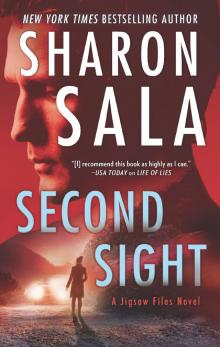 Second Sight
Second Sight Count Your Blessings
Count Your Blessings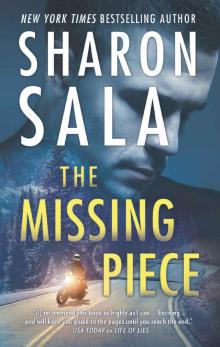 The Missing Piece (The Jigsaw Files)
The Missing Piece (The Jigsaw Files) Bloodlines
Bloodlines Sudden Danger
Sudden Danger King's Ransom
King's Ransom Once in a Blue Moon
Once in a Blue Moon A Rainbow Above Us
A Rainbow Above Us Always a Lady
Always a Lady Touchstone
Touchstone The Whippoorwill Trilogy
The Whippoorwill Trilogy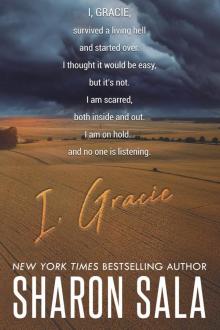 I, Gracie
I, Gracie Honor's Promise
Honor's Promise Rider on Fire
Rider on Fire The Gathering
The Gathering Don't Cry for Me
Don't Cry for Me The Way Back to You
The Way Back to You Swept Aside
Swept Aside Blood Stains
Blood Stains Chance McCall
Chance McCall Out of the Dark
Out of the Dark For Her Eyes Only
For Her Eyes Only 'Til Death (A Rebel Ridge Novel)
'Til Death (A Rebel Ridge Novel) Roman's Heart
Roman's Heart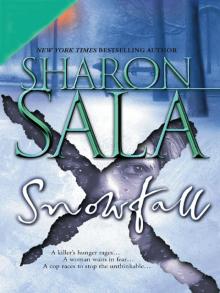 Snowfall
Snowfall Dark Hearts
Dark Hearts Mission: Irresistible
Mission: Irresistible A Place to Call Home
A Place to Call Home Betrayed
Betrayed The Lunatic Detective
The Lunatic Detective The Dove
The Dove Windwalker
Windwalker The Miracle Man
The Miracle Man The Curl Up and Dye
The Curl Up and Dye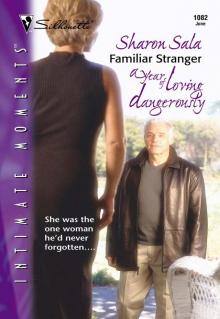 Familiar Stranger
Familiar Stranger Sweet Baby
Sweet Baby The Boarding House
The Boarding House Bad Penny
Bad Penny Remember Me
Remember Me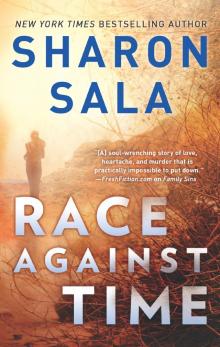 Race Against Time
Race Against Time The Dove (Prophecy Series)
The Dove (Prophecy Series)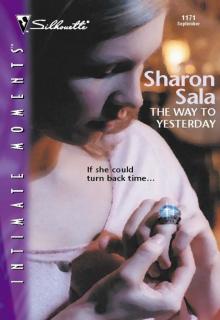 The Way to Yesterday
The Way to Yesterday The Healer
The Healer The Color of Love
The Color of Love Missing
Missing Next of Kin
Next of Kin A Field of Poppies
A Field of Poppies Cold Hearts
Cold Hearts Deadlier than the Male
Deadlier than the Male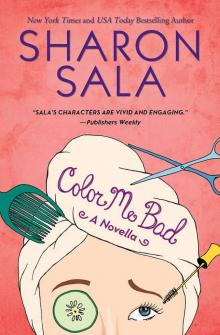 Color Me Bad: A Novella
Color Me Bad: A Novella Lunatic Times Two: 4 (The Lunatic Life Series)
Lunatic Times Two: 4 (The Lunatic Life Series)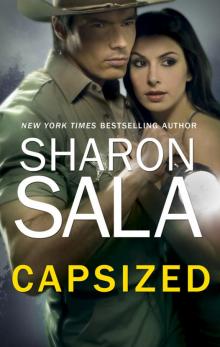 Capsized
Capsized Sympathy Pains
Sympathy Pains ROYAL'S CHILD
ROYAL'S CHILD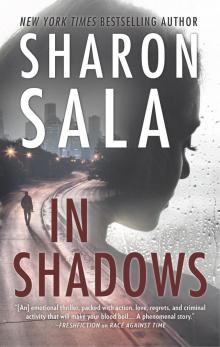 In Shadows
In Shadows 3, 2, 1...Married!
3, 2, 1...Married! Family Sins
Family Sins The Chosen
The Chosen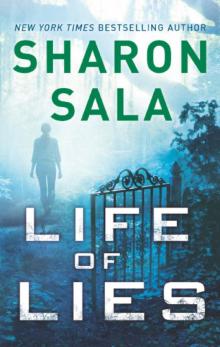 Life of Lies
Life of Lies Lunatic Revenge
Lunatic Revenge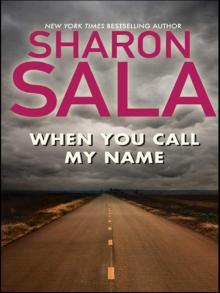 When You Call My Name
When You Call My Name I'll Stand By You
I'll Stand By You Saving Jake
Saving Jake Going Gone
Going Gone ANNIE AND THE OUTLAW
ANNIE AND THE OUTLAW Butterfly
Butterfly Cut Throat
Cut Throat Ryder's Wife
Ryder's Wife The Hen House
The Hen House Amber by Night
Amber by Night The Amen Trail
The Amen Trail Mimosa Grove
Mimosa Grove Dark Water
Dark Water Wild Hearts
Wild Hearts Blood Trails
Blood Trails The Warrior
The Warrior Shades of a Desperado
Shades of a Desperado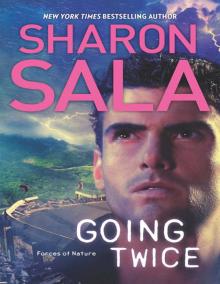 Going Twice
Going Twice A Piece of My Heart
A Piece of My Heart You and Only You
You and Only You Nine Lives
Nine Lives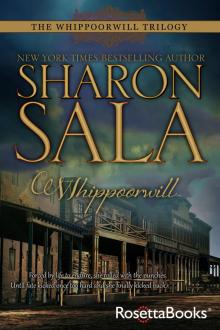 Whippoorwill
Whippoorwill